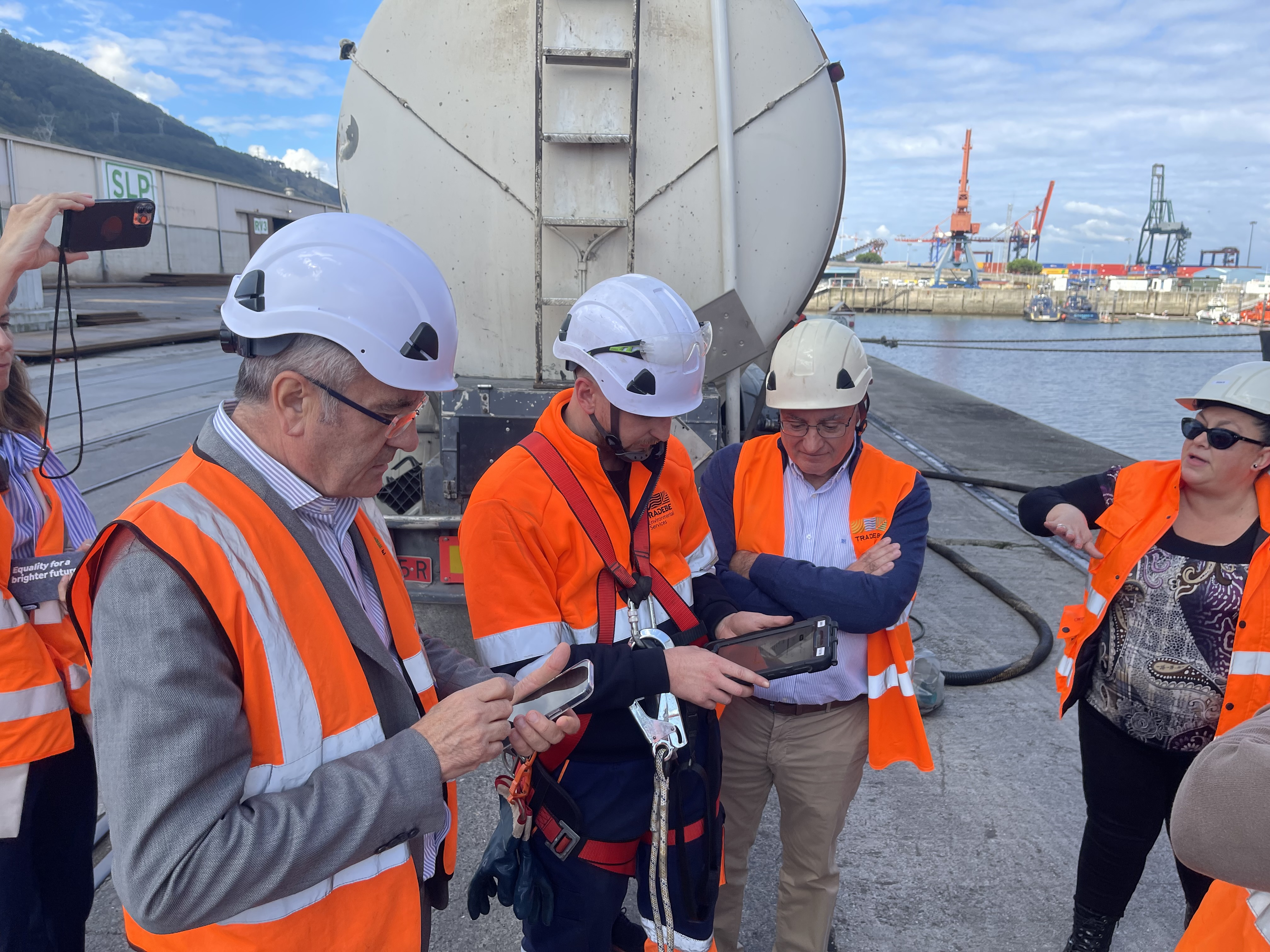The projects are focused on the digitalisation of the MARPOL service and real-time monitoring of container transport
Bilbao PortLab, the innovation hub of the Port of Bilbao, has been the venue for the final demonstration day of two projects funded through the second call for proposals of the Ports 4.0 Fund, financed by the State Ports Authority / Puertos del Estado, in its commercial category. The projects, developed by Navozyme Maritime Technologies and CLCircular, have showcased the technological breakthroughs the respective organisations have achieved in the port sector, reinforcing their commitment to digitalisation, sustainability and process efficiency in the logistics community.
Navozyme presented NSwap, a digital solution that revolutionises the issuance and management of MARPOL e-declarations and enables secure real-time data exchange between service providers, crew, shipping agents and port authorities. The platform, developed as part of the Port Clearance Pilot (PCP) innovation project, incorporates Blockchain Enabled Electronic Certificates technology, providing an additional layer of security and trust in administrative processes. Alongside NSwap, NMap was also presented, a tool that optimises and streamlines data exchange in the pre-arrival and ship clearance declaration processes, including a specific module for hazardous goods. The project has benefited from the collaboration of TRADEBE & Alfaship Shipping Agency and the support of the State Ports Authority and the Port Authorities and Harbour Master’s Offices of Barcelona, Bilbao and Santa Cruz de Tenerife, which has enabled these solutions to be validated in real operating environments.
For its part, the project of CLCircular has been successfully completed with all objectives met. An overview was provided of the project’s most significant milestones, such as the redesign of its cloud platform, the launch of a new generation of IoT sensors and technical validations of batteries and sensors.
These advances have enabled a fast, efficient and cost-effective flow in the reverse logistics of its IoT sensors to more than 400 destinations.
As a result, its customers can monitor all types of goods transported in shipping containers in real time, including those with tighter margins such as fruit and vegetables, reducing losses in the supply chain and avoiding the generation of electronic waste typical of disposable sensor models.
In short, the demonstration day highlighted the collaboration between start-ups, companies and the port community, demonstrating how the Ports 4.0 Fund of the State Ports Authority promotes solutions that contribute to the digital and sustainable transformation of the sector. Bilbao PortLab and the Port of Bilbao are thus reinforcing their commitment to open innovation, bringing to the port ecosystem state-of-the-art technologies with a direct impact on the competitiveness and efficiency of operations.

 Port access
Port access